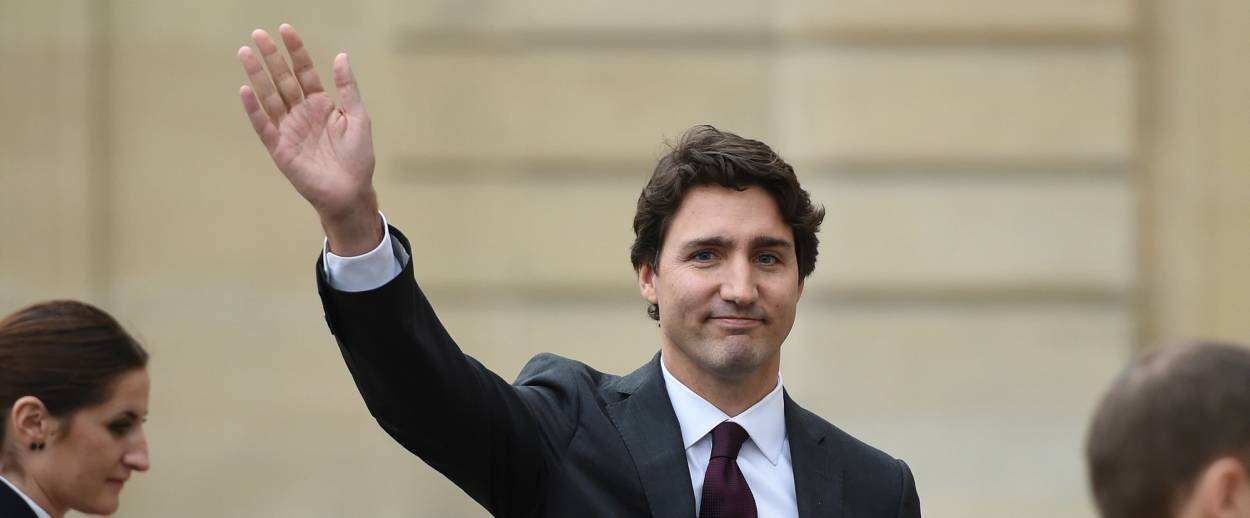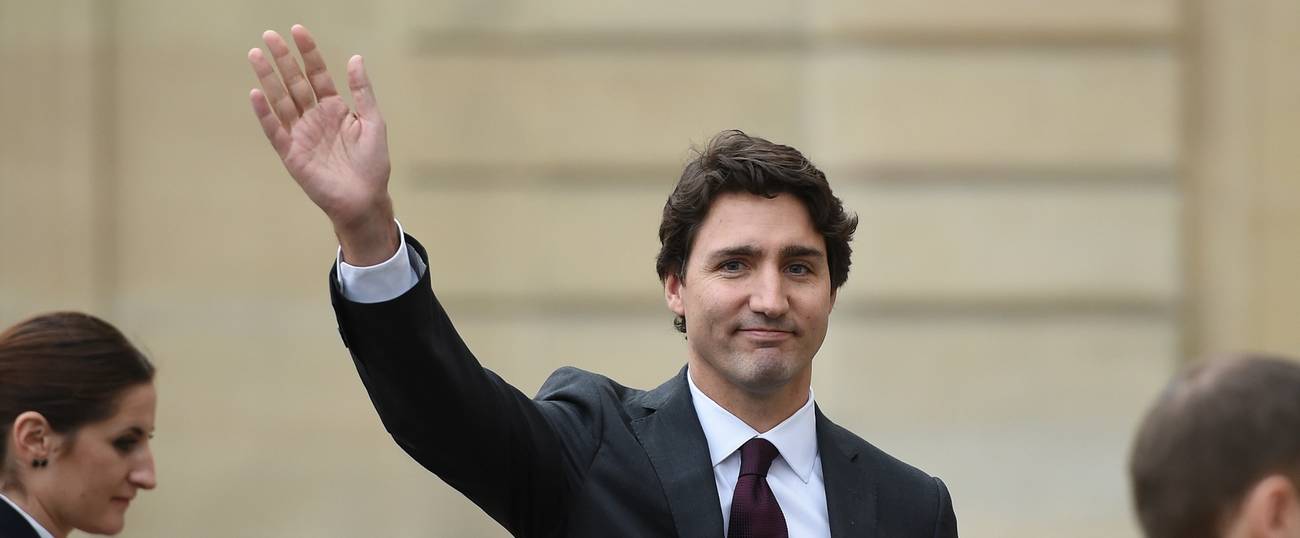On Wednesday, recently-elected Canadian Prime Minister Justin Trudeau issued his first official commemorative statement for International Holocaust Remembrance Day. The 111-word pronouncement is notable less for what it does mention, than for what it doesn’t: Jews and anti-Semitism. Here it is in its entirety:
On this day, we pay tribute to the memory of the millions of victims murdered during the Holocaust. We honour those who survived atrocities at the hands of the Nazi regime, and welcome their courageous stories of hope and perseverance.
The Holocaust is a stark reminder of the dangers and risks of allowing hate, prejudice, and discrimination to spread unchallenged. It also reminds us that silence must never be an option when humanity is threatened.
As we pause to educate ourselves and our families on the bitter lessons of the Holocaust, we also strengthen our resolve to work with domestic and international partners to continue defending human rights and condemning intolerance.
Remarkably, Trudeau elided the Jews from the story of their own genocide. As Yaacov Lozowick, the former director of archives at Yad Vashem put it, this is “the Holocaust, devoid of history.”
Now, it’s not hard to understand what the Canadian premier was trying to do. His intention was not so much to erase Jewish suffering as it was to draw out the ecumenical lessons of it. But in doing so, Trudeau fell prey to the false choice between depicting the Holocaust as either a universal warning against the human propensity for prejudice or as a particular one against the especial evils of anti-Semitism. In reality, it’s both.
Despite the fact that many feel compelled to choose between them, the universalist and particularist interpretations of the Holocaust are not actually mutually exclusive. One can recognize that the Shoah reflects a deep-rooted human tendency to demonize the Other, while also acknowledging how that Other has, for centuries, tended to be the Jews. The two-fold lesson, then, is that we must be vigilant against all forms of bigotry, while taking special care to combat anti-Semitism, in recognition of its deadliness and durability.
But Trudeau’s statement embodies more than just an illusory dilemma. It reflects a dangerous dynamic. Individuals or communities who pick only one of these takeaways from the Holocaust, rather than taking both to heart, risk misunderstanding the tragedy’s lessons. Those, including Jews, who view the Shoah as a purely particularist portrait of the perils of anti-Jewish prejudice may fail to confront such hatred when it is being faced by non-Jewish communities. At the same time, those like Trudeau who focus solely on the Holocaust’s universalist implications may come to underrate the uniquely murderous threat that anti-Semitism has and continues to pose for Jews—or even erase those Jews as inconvenient accessories in the story of their own persecution.
The challenge, in others words, is not to choose sides; it’s to internalize both sides.
For an example of how to achieve this, Trudeau might look to another North American political leader to whom he has been compared: Barack Obama. Speaking on Wednesday at the Israeli embassy’s ceremony to honor American gentiles who saved Jews during the Holocaust, Obama gave voice and balance to both the universal and particular understandings of the Shoah. First, like Trudeau, he referenced the tragedy’s universal lessons:
[E]ven as the Holocaust is unique, a crime without parallel in history, the seeds of hate that gave rise to the Shoah—the ignorance that conspires with arrogance, the indifference that betrays compassion—those seeds have always been with us. They have found root across cultures, and across faiths, and across generations… Too often, especially in times of change, especially in times of anxiety and uncertainty, we are too willing to give into a base desire to find someone else—someone different—to blame for our struggles.
But immediately following this nod to the human lessons of the Holocaust, Obama acknowledged its specifically Jewish ones as well:
Here, tonight, we must confront the reality that around the world, anti-Semitism is on the rise. We cannot deny it. When we see some Jews leaving major European cities — where their families have lived for generations — because they no longer feel safe; when Jewish centers are targeted from Mumbai to Overland Park, Kansas; when swastikas appear on college campuses — when we see all that and more, we must not be silent.
The president then called for action to fight prejudice against all, and specifically against Jews:
As President, I’ve made sure that the United States is leading the global fight against anti-Semitism. And it’s why, with Israel and countries around the world, we organized the first United Nations General Assembly meeting on anti-Semitism. It’s why we’ve urged other nations to dedicate a special envoy to this threat, as we have.
Finally, he pivoted once more to the universal:
We’re called to live in a way that shows that we’ve actually learned from our past. And that means rejecting indifference. It means cultivating a habit of empathy, and recognizing ourselves in one another; to make common cause with the outsider, the minority, whether that minority is Christian or Jew, whether it is Hindu or Muslim, or a nonbeliever; whether that minority is native born or immigrant; whether they’re Israeli or Palestinian.
It means taking a stand against bigotry in all its forms, and rejecting our darkest impulses and guarding against tribalism as the only value in our communities and in our politics.
In this manner, Obama offered an eloquent reminder that the particular and universal interpretations of the Holocaust are not contradictory, but complementary. It’s a lesson Trudeau and so many others—Jewish and not—should take to heart.

